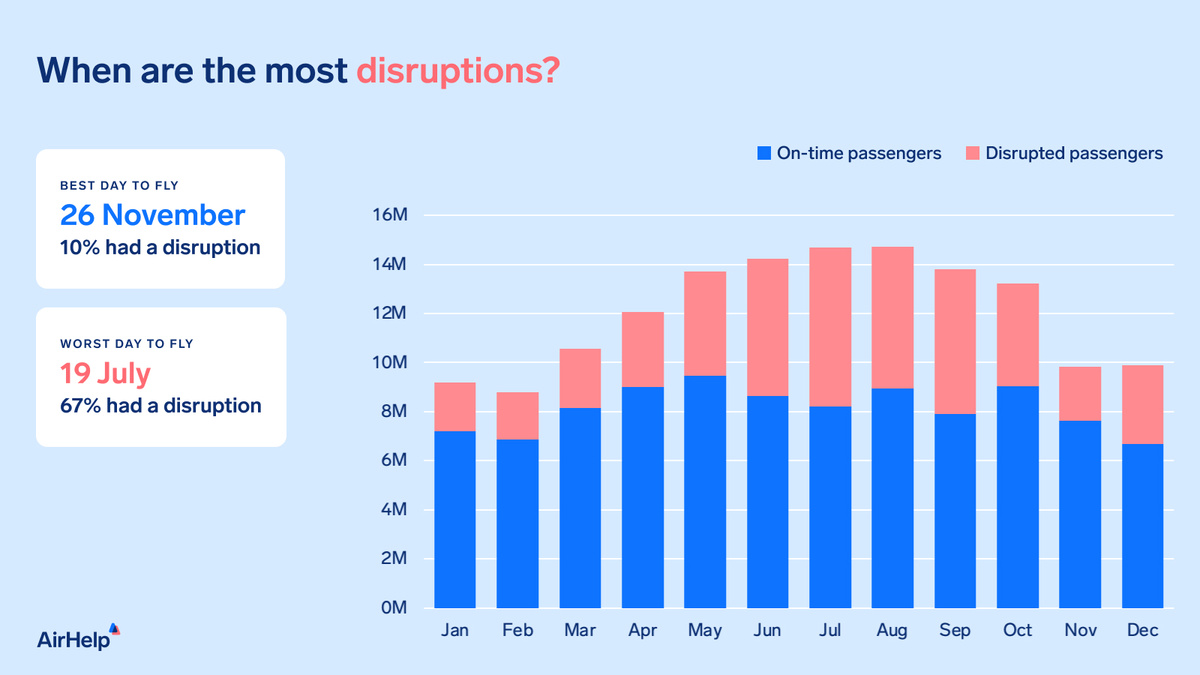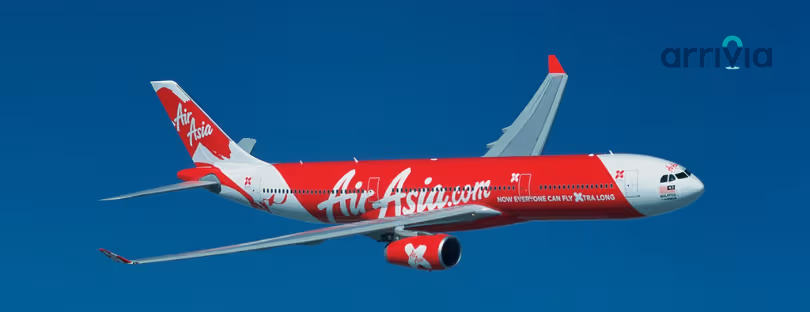
Nearly One in Three Flights Disrupted Last Year: Was Yours One of Them?
Let’s talk about something we all dread as travelers: flight disruptions. Whether it’s a delay that throws off your entire itinerary, a sudden cancellation that leaves you stranded, the dreaded overbooking situation, or the hassle of flight delay refunds, these hiccups can turn a dream trip into a logistical nightmare. And unfortunately, they’re more common than we’d like to think.
It’s not just a feeling; the numbers back it up. According to a recent report, nearly one in three flights experienced some form of disruption last year. That’s a staggering statistic, and it means a lot of us have been, or will be, affected. Think about it: delays ripple through connecting flights, cancellations can mean missed events or lost hotel bookings, and overbooking… well, nobody wants to be bumped from their flight. These disruptions aren’t just inconvenient; they can be costly and incredibly stressful.
The UK had the fifth highest proportion of disrupted flights, behind Bulgaria, Germany, and Portugal. Greece had the worst flight disruptions: 37% of passengers had a delayed or canceled flight there.
We’ve all been there: staring at the departure board, willing the “Delayed” sign to change, or frantically searching for alternative flights after a cancellation. The frustration is palpable, and often, passengers are left feeling powerless. Who do you turn to? What are your rights? And how do you even begin to navigate the complex world of airline regulations?
This is where AirHelp comes in. They’re a company that’s dedicated to helping passengers like us get the compensation we deserve when our flights are disrupted. Think of them as your advocates in the often-confusing world of air travel.
What does AirHelp do?
In simple terms, Airhelp takes the hassle out of claiming compensation for flight disruptions. They handle the entire process for you, from checking your eligibility to dealing with the airlines directly. They’re experts in air passenger rights, and they know the ins and outs of the regulations, so you don’t have to.
Here’s how it works: You simply provide Airhelp with the details of your disrupted flight – the flight number, date, and what happened (delay, cancellation, overbooking). They then assess your claim, and if you’re eligible for compensation under EU Regulation 261/2004 (or other applicable regulations), they’ll take it from there. They’ll deal with the airline, handle all the paperwork, and negotiate on your behalf.
Why use AirHelp? To get flight delay refunds!
Several reasons make AirHelp a valuable resource for travelers:
- Expertise: They know the regulations inside and out. This is crucial because airlines don’t always readily offer compensation, and navigating the legal landscape can be daunting.
- Convenience: Let’s be honest, dealing with airlines can be a time-consuming and frustrating experience. AirHelp takes that burden off your shoulders.
- No Risk: Airhelp typically operates on a “no win, no fee” basis. This means you only pay them if they successfully secure compensation for you. So, you have nothing to lose by checking your eligibility.
- Maximizing Compensation: Because they’re experts, Airhelp knows how to maximize the compensation you’re entitled to.
Beyond the Statistics: Real-World Help
The flight disruption statistics are eye-opening, but they’re more than just numbers. They represent real people, real travel plans, and real frustrations. Airhelp provides a tangible solution to these problems, empowering passengers to claim their rights and receive the compensation they deserve.
So, the next time you find yourself stuck at the airport, wondering what to do about a delayed or canceled flight, remember AirHelp and its flight delay refunds service. It’s a resource that can turn a stressful situation into a manageable one, and potentially put some money back in your pocket. It’s definitely worth checking out if you’ve experienced a flight disruption in the past, or if you want to be prepared for the possibility in the future. After all, with flight disruptions as common as they are, it’s better to be safe than sorry.
Have you ever experienced a flight disruption?











